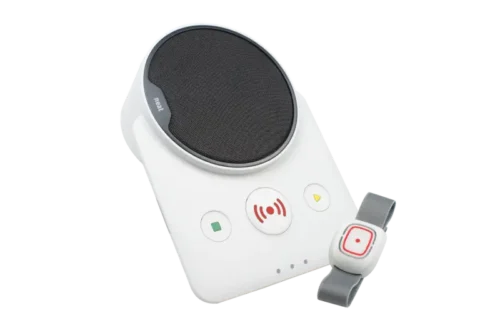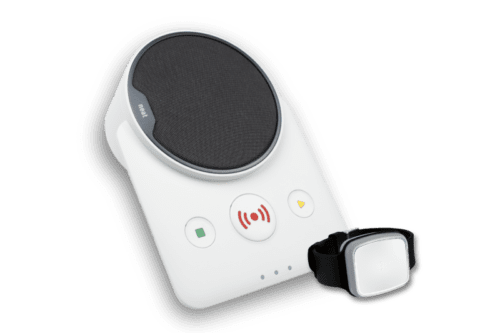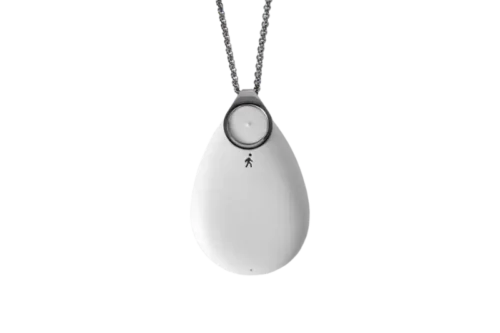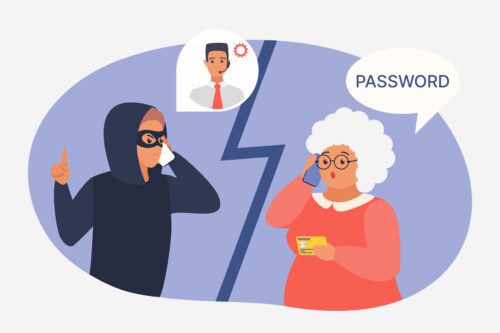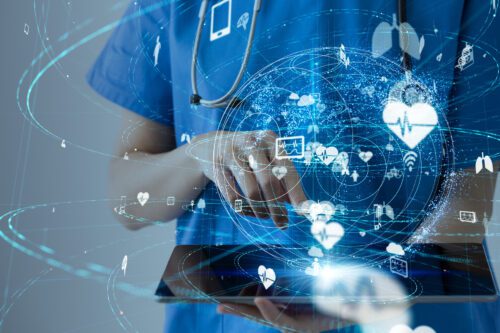Telecare technology has proven to be a vital aid to the healthcare industry. Early forms of it began as early as the mid-20th century. Many of us are familiar with it, but what exactly is Telecare and how did it evolve into the indispensable service it is today?
What is Telecare?
Imagine having a reliable safety net woven into your everyday life – this is what telecare offers. Telecare is a service that uses technology to help monitor and offer support to elderly or vulnerable people, especially those who live alone in their homes. From sensors that detect falls to pendants that can be pressed to trigger alerts and receive immediate responses from the monitoring service, telecare allows users to live independently while ensuring support is just a button away.
What role does Telecare play in healthcare?
Telecare alarms are beneficial for many reasons. By way of a brief introduction, here are some ways it is currently impacting healthcare:
- Empowering independence: Telecare helps vulnerable individuals, such as the elderly and those with chronic illnesses or disabilities, to live independently.
- Cost-effective solutions: Telecare can be a more affordable option compared to full-time residential care.
- Alleviating pressure from healthcare services: such as enabling hospitals to discharge patients earlier who just need a little more support at home.
- Enhancing safety: Telecare systems enhance safety by detecting emergencies, such as falls, and alerting emergency services.
- Providing peace of mind: These technologies offer reassurance to both users and their families, knowing that help is readily available in case of an emergency.

The Early Years of Telecare
Telecare monitoring technology can be tracked as far back as the mid-20th century. Early systems used basic telephone alerts. If someone needed help, they could push a button to call for assistance. This was especially helpful for older people who lived alone.
In the 1950s, they used closed-circuit television systems for remote doctor consultations, like the one between the Nebraska Psychiatric Institute and Norfolk State Hospital in the US. This was one of the first times they used technology to provide medical care from a distance, laying the foundation for more advanced telecare technologies.
In the 1960s, NASA created tools to monitor astronauts’ health while in space.
The first American astronauts were fitted with electrodes to track their heartbeats and a thermistor that recorded breathing by detecting the temperature change caused by airflow from the mouth. Later, NASA designed a special cuff to measure their blood pressure. The pressure cuff was equipped with a microphone to detect the sound of the astronaut’s heartbeat as the cuff would slowly deflate and inflate. All this information was transferred to a signal conditioner for NASA to analyse and ensure their astronauts’ were in good health during their missions.
These early advancements set the stage for the telecare systems we have today. Their successes and shortcomings guided the creation of more advanced telecare technologies, like wearable monitoring systems.
Key Developments
In the early 2000s, doctors started to hold appointments over the phone or via video call. This was also when electronic health records (EHRs) were first used and played a significant role. EHRs made it easier for healthcare providers to share information efficiently and work together remotely.
By 2010, wearable technology like fitness trackers and smartwatches became popular. These devices allow people to better understand their health by monitoring things like heart rate, steps taken, and even sleep.
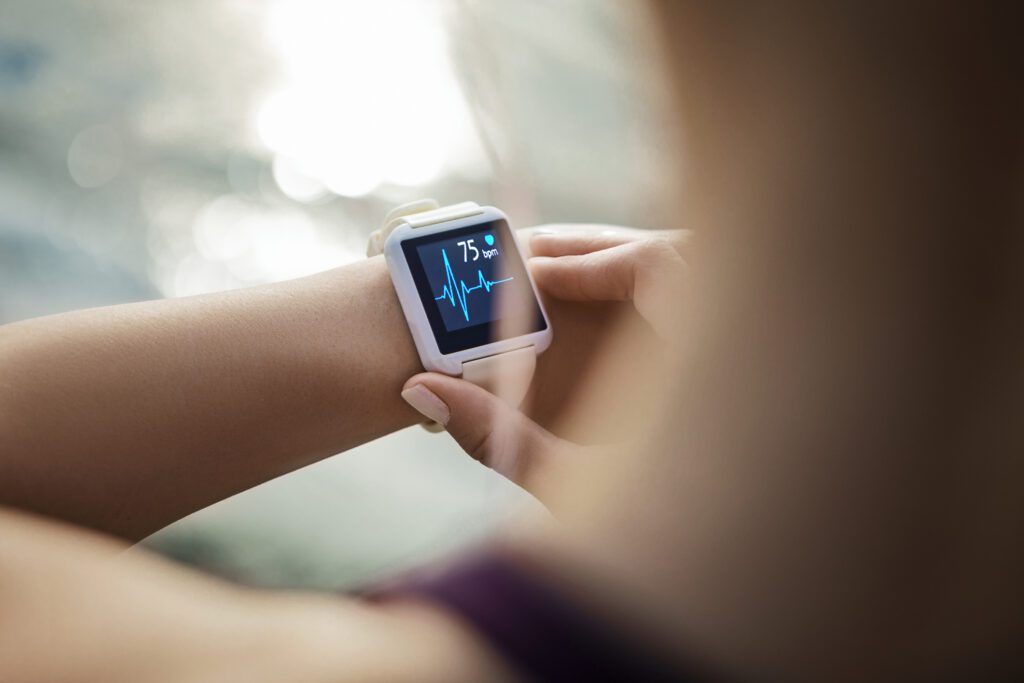
The Covid-19 pandemic caused a lot of changes in how we receive healthcare. With lockdowns and social distancing, many people couldn’t visit their doctors in person. As a result, there was a rise in using technology for medical appointments and the adoption of telecare accelerated. Virtual doctors appointments, keeping track of health from home, and using apps for healthcare have all become more common.
Today’s telecare systems have advanced monitoring tools that can keep track of many aspects of your health in real time. As well as detecting a fall, the latest wearable devices track and record information such as heart rate, blood pressure, and blood sugar levels.
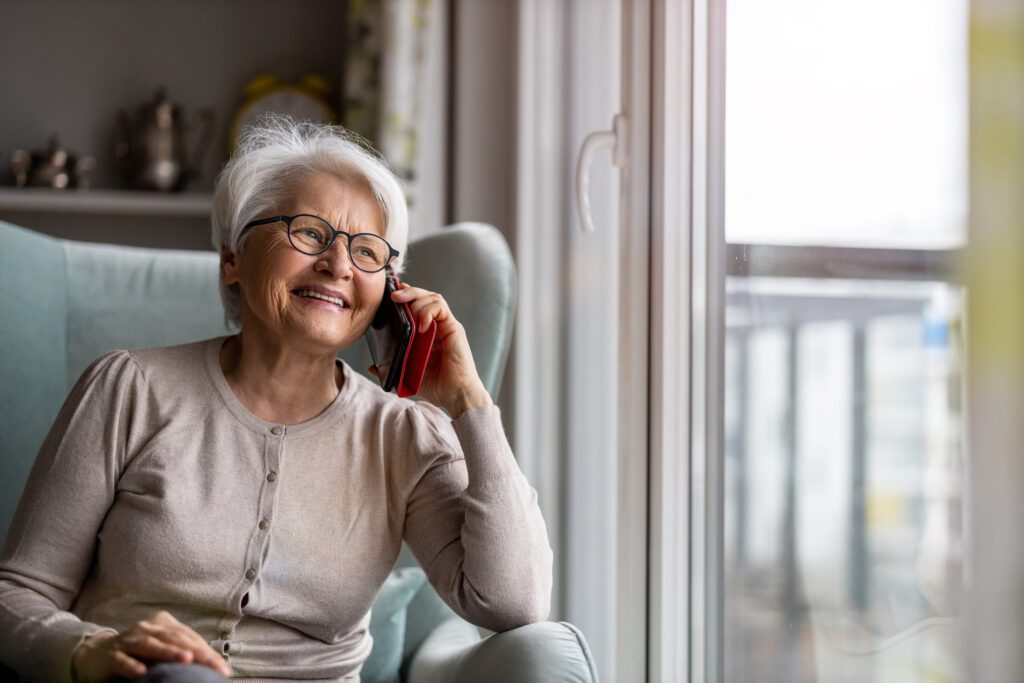
The Digital Switchover
The digital switchover involves moving from older analogue technology to newer digital technology. This transition has significantly impacted telecare.
In 2017, BT announced plans to phase out the old analogue telephone network by 2027 and replace it with a fully digital network and enhance communication reliability. Openreach aims to install super-fast broadband in 25 million households by the end of January 2027, providing better customer service.
How does the digital switchover affect telecare monitoring technology?
Digital networks improve analogue systems because they offer more reliable and faster communication. This helps telecare devices send information more efficiently and with fewer interruptions, making calls clearer. Also, digital systems have stronger security measures to protect private health data transmitted by telecare devices.
Switching to digital systems also promotes better call quality. Digital phone services often support HD voice, which makes conversations clearer and more natural-sounding because it can handle a wider range of sounds compared to traditional analogue systems.
Although mostly beneficial, the digital switchover did pose some challenges for the telecare industry. For example, many telecare devices were designed for analogue networks. As such, many will need to be replaced or upgraded to be compatible with the new digital networks.
Overall, the switch from older technology to newer digital technology has led to big improvements in the way we can monitor and care for people using technology. This has made the technology stronger, more secure, and better connected to other digital health tools.
Telecare24 Digital Personal Alarms
As more people switch from traditional landlines to newer technology, digital personal alarms are becoming increasingly popular. Telecare24 offers digital personal alarms that are great for helping you stay independent.
These alarms use a mobile SIM card or your home broadband to connect to a monitoring centre that operates 24/7. Some of these alarms have features like automatically letting someone know if you fall or being able to track your location using GPS. If you do fall, the alarm will let the monitoring centre know, and they can contact your family or emergency services for you.
By using advanced technology to detect falls and other emergencies, these alarms can help keep you safe and independent, and give you and your loved ones more peace of mind.
The Future of Telecare
As technology keeps improving, we can expect the telecare industry to get even better. The integration of AI (Artificial Intelligence) technology could result in more personalised telecare based on a person’s genetics and health history. The Internet of Things (IoT) is also set to improve telecare technology by connecting different health devices and systems, making it easier to share information and provide better care overall.
At Telecare24, we want to reassure you that we’ll keep you updated on our plans and continue to provide the reliable service you’re used to.
If you have questions about switching to digital personal alarm equipment, contact us at 0800 180 85 40 or support@telecare24.co.uk.
